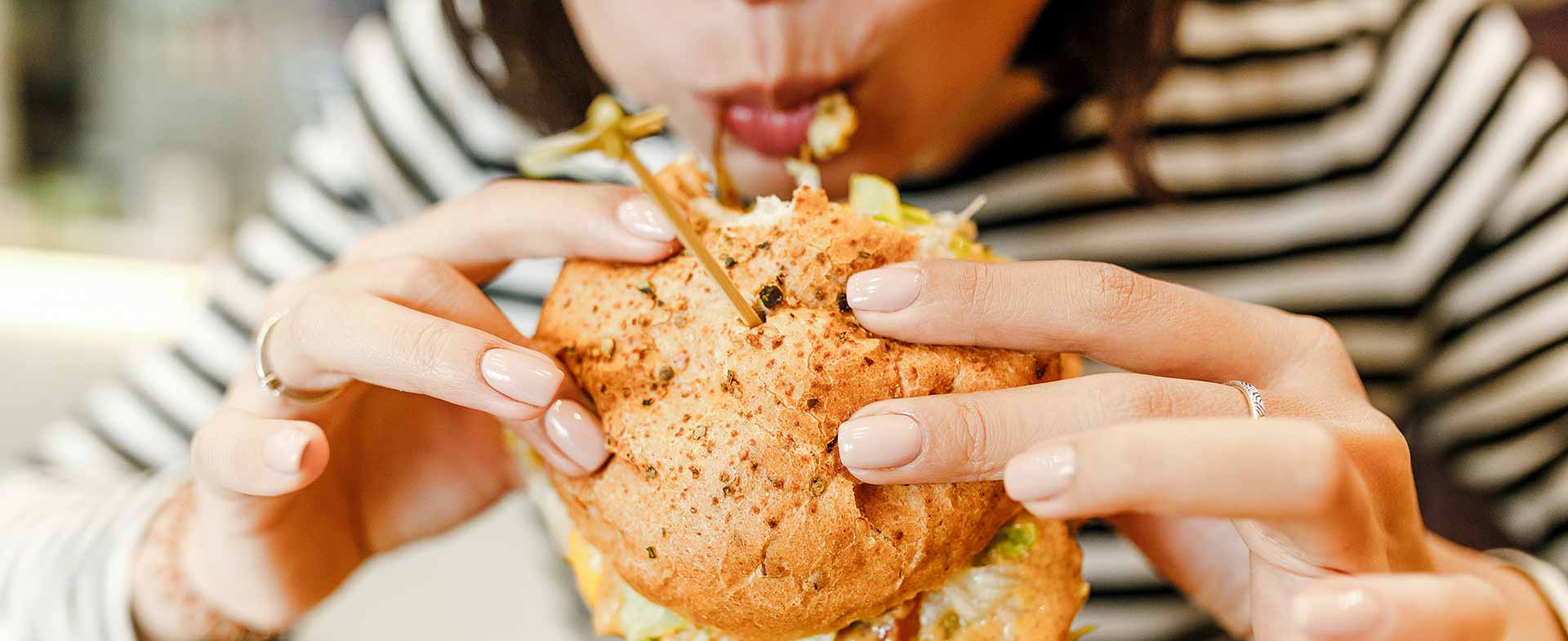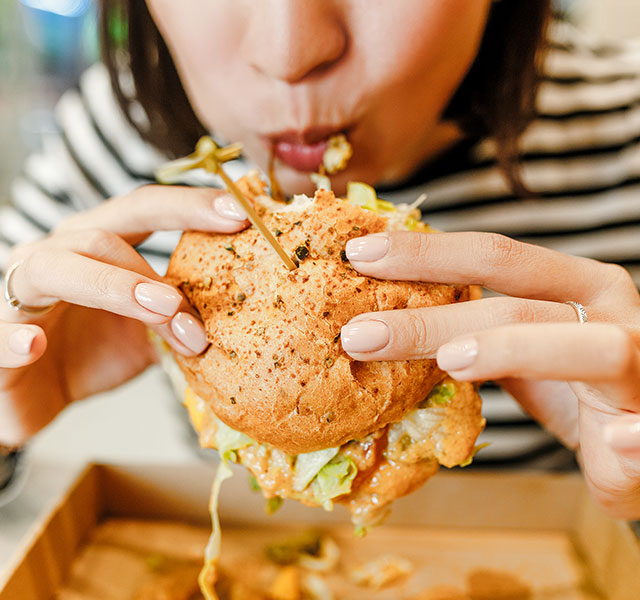In our over-scheduled, fast-paced culture we want everything to move at high speed. Too often, that includes even our meals.
“Our hectic lives have created a culture of eating too quickly and eating while multitasking other activities,” says Bethany Thayer, MS, RDN, director of the Henry Ford Center for Health Promotion and Disease Prevention. “We’ve stopped paying attention to our food and savoring it.”
Gobbling your meals doesn’t just take away some of the enjoyment of eating. It can also lead to digestive issues and weight gain.
How Do I Know If I’m Eating Too Fast?
There’s no hard and fast rule about how long it should take to eat a meal, but “it probably should be more than 20 minutes,” says Thayer. Signs that you may be eating too quickly include:
- Choking on food (because you’re swallowing without chewing thoroughly)
- Feeling bloated after meals from gulping in air as well as food
- Feeling hungry shortly after eating
- Taking your next bite before thoroughly chewing and swallowing the previous one
“You don’t need to be at the table for hours,” says Thayer. “But give yourself at least 30 minutes dedicated to eating at each meal.”
The Health Risks of Eating Too Fast
Consistently racing through your meals isn’t good for you. It can take away from the enjoyment of food and the opportunity to relax. And eating too fast can also affect your health.
“Digestion starts with the saliva in your mouth,” says Thayer. When you chew, the saliva begins to break down your food for digestion. And the act of chewing also increases blood flow to the stomach. “It all starts with that first bite,” she says.
If you don’t chew thoroughly, your digestive system is at a disadvantage. “Chewing your food well gives your digestive enzymes a chance to gear up and be ready to efficiently process your food and its nutrients,” says Thayer.
How Fast Eating Leads to Weight Gain

The other problem with eating too quickly is that it can increase your risk of overweight and obesity. Research has shown that children and adults with faster eating speeds are more likely to develop overweight and associated conditions like diabetes.
Eating too fast often means overeating. That’s because your food intake outpaces your body’s ability to signal that you’re getting full. When you don’t get that signal, you may just keep eating.
“It takes about 20 minutes for the signals to travel from stomach to brain telling you that you’re full,” says Thayer. “When we eat too fast, it’s easy to ignore those satiety cues and continue to eat long past when we’re actually full.”
Not surprisingly, overeating on a regular basis is likely to lead to weight gain.
How to Slow Down While Eating
Slowing your eating pace can provide physical and emotional benefits. And it’s not as hard as you might think to create better eating habits.
Thayer suggests these tips to help you eat at a healthy speed and enjoy your meals more:
- Chew more times: You don’t need to count every chomp, but Thayer recommends checking occasionally to make sure you’re chewing thoroughly (which could be up 30 chews for some foods).
- Ditch the distractions: Eating in front of the TV, while scrolling on your phone or while driving can lead to eating too much, too fast. Instead, focus on your meal and enjoying it with friends and family.
- Don’t get over-hungry: When you wait too long to eat, you tend to gobble food to quell that hungry feeling quickly.
- Eat mindfully: Mindful eating allows you to pay attention to your food (instead of other distractions). Use all your senses to appreciate the look, texture, smell and taste of each bite. Give yourself the time you need to truly enjoy what you’re eating.
- Put your fork down between bites: If nothing else works, Thayer suggests using some tricks that will physically slow your pace. Try putting your fork down between each bite, eating with your non-dominant hand or using chopsticks.
You may be surprised by how much more you enjoy your food when you slow your eating pace—and how much better you feel too.
Reviewed by Bethany Thayer, MS, RDN, director of the Henry Ford Center for Health Promotion and Disease Prevention.



